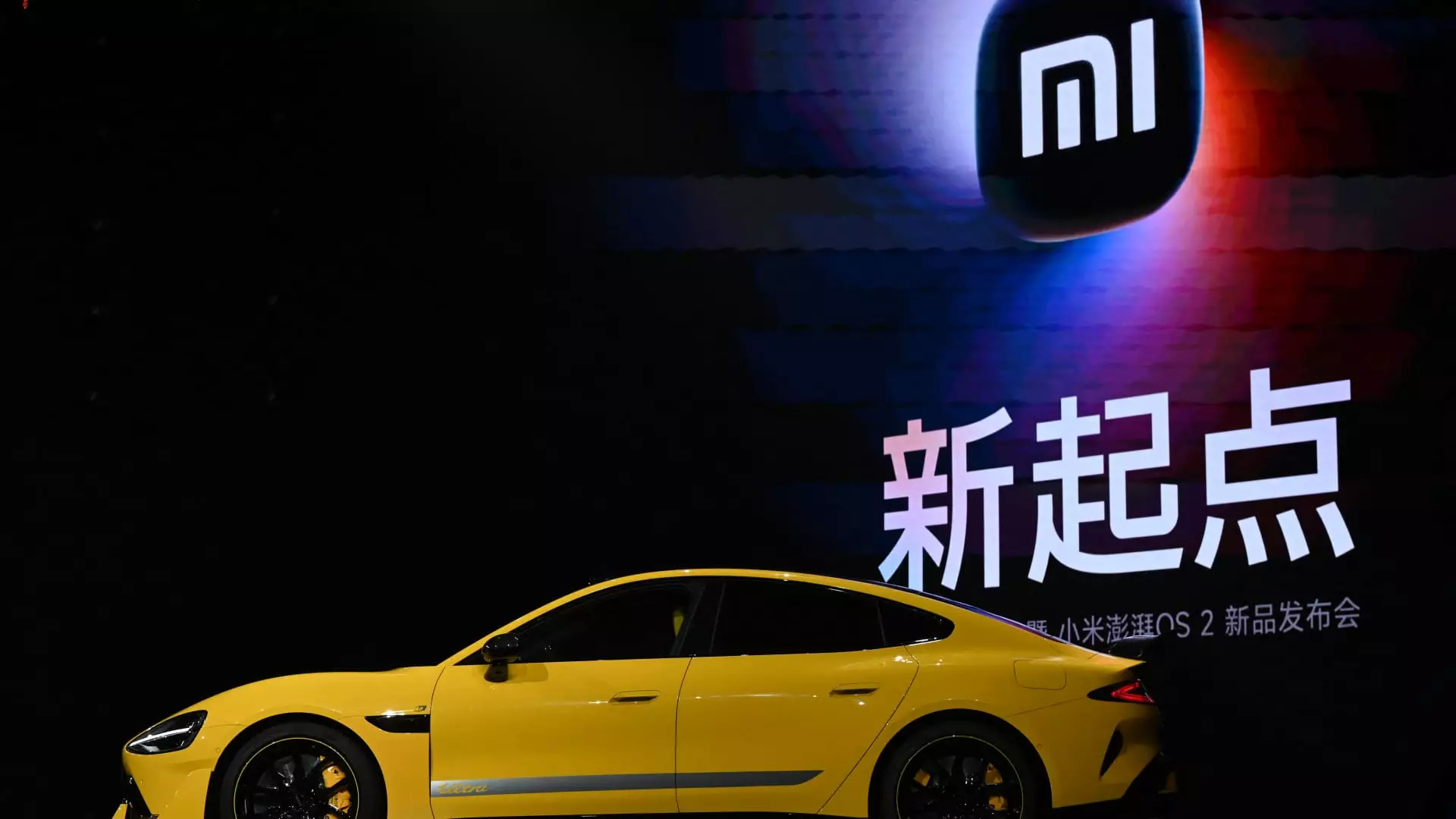As the electric vehicle (EV) market continues to burgeon with competition, Xiaomi, a tech giant traditionally celebrated for its smartphones and home electronics, is steadfastly positioning itself as a formidable player in the automotive sector. Recently, the company announced the delivery of over 20,000 units of its SU7 electric vehicle in October alone, underscoring its exponential growth in production capabilities in an ever-evolving landscape.
Xiaomi’s foray into the EV arena began in earnest in 2021 when the company unveiled plans to manufacture its electric vehicles, complemented by a dedicated production plant capable of facilitating large-scale automotive manufacturing. The SU7, Xiaomi’s flagship EV model, launched in March, serves as a direct challenger to established competitors like Tesla, particularly with its pricing strategy aimed squarely at offering consumers a more affordable alternative to the Model 3.
By selling the basic version of the SU7 for about $4,000 less than Tesla’s offering, Xiaomi effectively carved a space for itself within the price-sensitive segment of the Chinese market. Following its launch, Tesla swiftly adjusted its pricing, further solidifying the competitive dynamics that characterize the industry. Despite these challenges, Xiaomi has successfully delivered over 75,000 units of the SU7 since its rollout, indicating a rapid acceptance among consumers.
The electric vehicle sector in China is flooded with numerous players, each vying for market share in a landscape where sales figures often become headlines. For instance, Xpeng and Nio took up to six years to reach the production milestone of 100,000 cars, while Tesla accomplished this in twelve years. Conversely, Xiaomi’s expedited journey in achieving substantial delivery numbers in a matter of months highlights its strategic planning and operational efficiency.
Interestingly, in the realm of monthly records, Xpeng distinguished itself by reporting a delivery of over 20,000 cars in September, driven largely by its new sub-brand aimed at more affordable offerings. On another front, Nio has faced hurdles maintaining its monthly outputs. Emerging brands, such as Geely’s Zeekr, have also shown rapid growth, signifying a competitive environment where innovation and pricing strategies play crucial roles in shaping market outcomes.
Xiaomi is not just stopping at the SU7; the company announced the commencement of pre-orders for its high-performance variant, the SU7 Ultra. Highlighting the zeal around this new model, Xiaomi reportedly received over 3,600 pre-orders within ten minutes of its announcement, which speaks volumes about consumer enthusiasm. Priced at approximately $114,304, this premium model seeks to attract a different audience segment focused on high performance and superior automotive technology.
Citi analysts anticipate that the SU7 Ultra, with its commendable performance metrics, including claims of dominance on the Nurburgring race track, will bolster Xiaomi’s overall sales initiatives for its electric vehicle line-up. Enhanced models like the SU7 Max may also see an uptick in interest, with analysts projecting an increase in the company’s delivery forecast for next year, demonstrating confidence in Xiaomi’s approach.
Despite its keen focus on the domestic market, where it currently operates, Xiaomi has indicated that international ventures may not materialize for another two to three years. This timelines highlights the strategic approach the company is undertaking, ensuring that it solidifies its market presence and operational proficiency in China before expanding outward.
The overall trajectories of EV growth in China remain fiercely competitive and rapidly evolving, with shopping trends shifting and consumer preferences redefining the landscape over time. Xiaomi’s pivot to electric vehicles not only exemplifies a diversification strategy but also places it in a position of potential market leadership in a sector projected for substantial growth in the coming years.
As Xiaomi furthers its ambitions in the electric vehicle domain, the company epitomizes the larger narrative of technological transformation and competitive rivalry that is exhilarating the automotive industry today. Each strategic maneuver and production milestone serves as a testament to Xiaomi’s commitment to reclaiming its relevance beyond consumer electronics, aiming for a lasting impact within the evolving realm of electric mobility.

